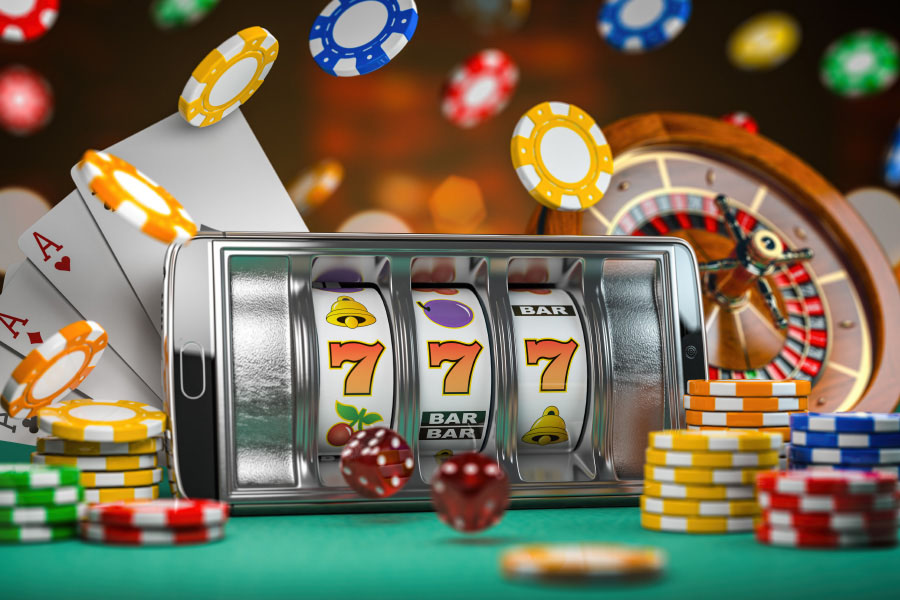
In the dynamic world of betting, gaming activities have long enthralled the imagination of players around the planet. These activities, ranging from traditional table options like blackjack to the spinning reels of fruit machines, offer an captivating combination of chance and skill. While fortune undeniably plays a important role in determining outcomes, the significance of skill in many gambling games cannot be neglected. Comprehending how knowledge shapes gameplay can improve not only a participant’s engagement but also their likelihood of winning.
As we explore further the mechanics of casino games, it becomes evident that some need a strong foundation of understanding and tactics. Activities like Texas Hold’em call for more than simple luck; they demand analytical thinking, emotional insight, and strategic decision-making. In contrast, other games, such as roulette and fruit machines, are primarily determined by luck, allowing participants to rely entirely on luck. This difference raises intriguing questions about what truly drives success in the realm of gambling and how a gambler’s competences can sway the outcome in their benefit.
Grasping Skill vs. Chance within Casino Activities
In the realm of casino games, the discussion between skill and luck is a enduring one. Several games are frequently divided into two categories: those that depend predominantly on chance, such as slots and the wheel, and those where skill plays a major role, like poker and 21. The difference is important because it affects not only gameplay strategies but also the approach players adopt when participating with these games. While luck can play a decisive role in the short term, skilled players can increase their chances of winning over the extended period in skill-based games.
Skill-based games, especially poker, require players to comprehend probability, psychology, and game strategies. A seasoned poker player can analyze rivals, make calculated bets, and understand when to fold, all of which can lead to more successful outcomes. Conversely, in games that are purely based on chance, no amount of skill can alter the odds. This implies that while a player may win big in one session, their success may often be at the mercy to the whims of chance results rather than any tactical expertise. Сasino non AAMS che pagano subito
In the end, both skill and luck exist together in the world of casino games, forming a dynamic environment for players. Although games of chance can provide excitement and instant gratification, mastery and strategy in skill-based games offer a richer level of engagement for those willing to dedicate time in honing their craft. This interplay between skill and luck defines the journeys of players and influences their connection with the games they select to play.
The Impact of Ability on Casino Results
In the field of casino games, proficiency plays a significant role in determining the results, especially in activities where strategy and decision-making are paramount. For example, in poker, competitors must assess rivals, calculate odds, and make strategic bets to maximize their chances of succeeding. Unlike activities that depend purely on luck, such as slots or the roulette wheel, poker demands an understanding of both the game mechanics and the psychology of other participants, making expertise a vital component of victory.
Other strategy-based activities, like blackjack, also emphasize the importance of player skill. Knowledge of basic strategy, card counting, and when to hit or stand can dramatically influence the casino advantage. A skilled 21 player can lower this edge and improve their chances of winning over time. This contrasts sharply with games that do not allow for such tactical play, demonstrating how the level of expertise influences the possibility for favorable outcomes.
Moreover, even within games deemed primarily chance-driven, like craps, the decisions made by gamblers can influence their overall performance. Choosing the right bets, understanding the odds of different results, and controlling one’s funds are essential factors that can enhance a player’s experience and results. Thus, while luck remains a component in casino games, ability can significantly influence how efficiently players navigate these settings, leading to more favorable results.
Strategies for Skillful Play in Gaming Establishments
To thrive in gambling games, players must develop a robust understanding of the regulations and probabilities involved in every game. This foundational knowledge enables individuals to make wise decisions, especially in skillful games like poker and blackjack. Familiarizing oneself with game tactics, such as keeping track of cards in 21 or recognizing wagering trends in Texas Hold’em, can significantly enhance a player’s chances of success. Sharpening these strategies through practice games or lower-stakes games allows players to hone their skills without risking substantial amounts of cash at risk.
One more key strategy is budgeting. Players should create a spending limit before entering the gaming establishment and stick to it strictly. This involves deciding how much they are prepared to lose and setting limits on how much they will bet in each session. By keeping a controlled approach to gambling, players can sustain their play and reduce the risk of major losses. Additionally, taking breaks can help preserve a clear mind and prevent impulsive decisions that often lead to bad gameplay.
In conclusion, managing emotions is vital in the high-stakes environment of a casino. Players must be adept at controlling their emotions, particularly during times of success or defeats runs. Staying attentive and not allowing emotions influence gameplay can lead to more logical decisions. Methods such as taking deep breaths or stepping away from the gaming table during intense moments can help keep calmness. By cultivating a steady state of mind, players can approach casino games with assurance and expertise, ultimately enhancing their overall gaming experience and outcomes.
